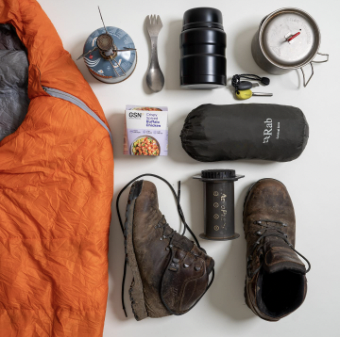

Loading...

Loading...
With the London Marathon fast approaching, it’s an opportune moment to delve into the critical role of nutrition in optimising race performance. Among the many strategies advocated by runners and nutritionists, carb-loading stands out as a key tactic for enhancing endurance and maximising energy reserves on race day.
Carb-loading involves strategically increasing carbohydrate intake in the days leading up to a marathon to maximise muscle glycogen stores, the body’s primary fuel source during endurance exercise. By replenishing glycogen stores through carb-loading, runners can delay fatigue and sustain energy levels throughout the race.
To embark on a successful carb-loading journey, it’s essential to determine your individual carbohydrate requirements. A widely recommended guideline is to consume 8-10 grams of carbohydrates per kilogram of body weight per day during the carb-loading phase. This ensures adequate glycogen replenishment without overloading the digestive system.
You can read more on the theory behind this calculation, HERE.
For example, a 70-kilogram runner would aim to consume 560-700 grams of carbohydrates daily in the days leading up to the marathon. This calculation provides a personalized benchmark to guide your carb-loading strategy and optimize race-day performance.
As the marathon approaches, gradually increase your carbohydrate intake by incorporating carbohydrate-rich foods into your meals. Opt for easily digestible sources such as oats, potatoes, rice, and pasta, and aim for a high-carb, low-protein, and low-fat diet to maximize glycogen storage.
Maintain a high-carbohydrate diet and prioritize hydration to ensure optimal glycogen replenishment and muscle function. Adequate hydration is essential for supporting glycogen synthesis and preventing dehydration, both of which can impact performance on race day.
In the final days leading up to the race, carbohydrates should comprise 85-95% of your total caloric intake. Focus on consuming easily digestible carbohydrates to minimize gastrointestinal discomfort during the race. Additionally, consider reducing fibre intake to prevent gastrointestinal issues that may arise during prolonged exercise.
Mangos (28g of carbs per 240g) and white bread (0.6g fibre per slice) are great options.
On the eve of the marathon, enjoy a carb-heavy dinner consisting of easily digestible foods such as pasta, rice, or potatoes. Keep portions moderate to avoid feeling overly full or bloated on race morning. Aim to eat your dinner early in the evening to allow ample time for digestion and ensure you wake up feeling hungry and energized on race day.
Fuel up for the race with a carbohydrate-rich breakfast, aiming for approximately 2 grams of carbohydrates per kilogram of body weight. Overnight oats are an excellent choice for their digestibility and sustained energy release. In addition to solid food, prioritize hydration by incorporating electrolytes into your water intake, aiming for 5-10 millilitres per kilogram of body weight every 10 kilometres. During the race, aim to consume 20-30 grams of carbohydrates every 10 kilometres or 60 minutes to sustain energy levels and delay fatigue. Opt for easily digestible sources such as energy gels, honey, or dates, and avoid high-fat snacks that may cause gastrointestinal distress.
While these guidelines provide a general framework for carb-loading, it’s essential to tailor your nutrition strategy to your individual needs and preferences. Factors such as training volume, intensity, body composition, and personal tolerance can influence your carbohydrate requirements and fueling preferences. Experiment with different foods and hydration strategies during training to identify what works best for you and refine your race-day nutrition plan accordingly.
In conclusion, carb-loading is a valuable tool for marathon runners seeking to optimise their performance and achieve their race-day goals. By following a systematic approach to carbohydrate intake in the days leading up to the marathon and customising your nutrition plan to suit your individual needs, you can maximize glycogen stores, delay fatigue, and unlock your full potential on race day. Remember to stay hydrated, listen to your body, and trust in your training as you embark on this exhilarating marathon journey.
Proper hydration is essential for optimizing glycogen storage and supporting overall performance during the marathon. Glucose requires water to store as glycogen, making hydration a critical aspect of your race-day strategy. Isotonic drinks, sweets, water, and energy gels are invaluable on race day, providing essential energy to fuel your marathon effort.
Aim to drink 5-10 millilitres per kilogram of body weight every 10 kilometres. It’s recommended to consume this amount 2 hours before your run to ensure you are adequately hydrated and ready to tackle the marathon course.
Streamline your pre-race meal planning with our frozen healthy ready meals. No more last-minute stress—just convenient, nutritious options waiting in your freezer. With the perfect balance of carbs, proteins, and fats, our meals are designed to fuel your training and save you time.
In the hectic days leading up to race day, time is precious. Our frozen healthy ready meals offer a hassle-free solution, allowing you to focus on training and relaxation. Simply heat and enjoy a balanced meal that supports your performance goals, without compromising on taste or nutrition.
